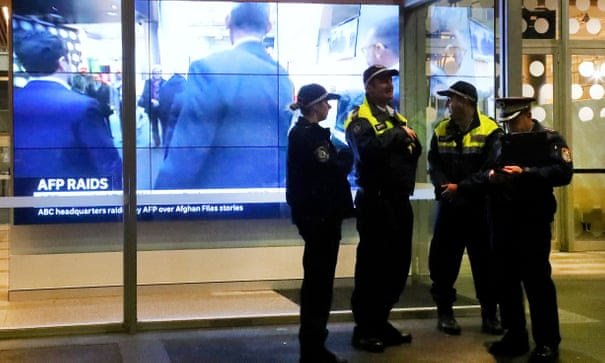
Australia’s three largest media organizations joined forces on Wednesday to demand legal reforms that would prevent journalists from risking imprisonment for doing their jobs. The demands came after unprecedented raids against media organizations by police searching for leaked documents that some say were deeply embarrassing to the government.
News Corp. Australia, Australian Broadcasting Corp. and Nine Entertainment made their demands after raids by federal police on consecutive days earlier this month at ABC’s Sydney headquarters and a News Corp. reporter’s Canberra home in search of secret government documents.
The rival organizations want journalists to be exempt from national security laws passed since 2012 that “would put them in jail for doing their jobs.”
They also want a right to contest warrants such as those executed in Sydney and Canberra. Both the ABC and New Corp. this week lodged court challenges to both those warrants in a bid to have documents returned.
The organizations have called for greater legal protections for public sector whistleblowers as well as reforms to freedom of information and defamation laws.
ABC Managing Director David Anderson, News Corp. Australia Executive Chairman Michael Miller and Nine Chief Executive Hugh Marks addressed the National Press Club on Wednesday as part of a campaign to gain public support for reform.
“Clearly, we are at a crossroads. We can be a society that is secret and afraid to confront sometimes uncomfortable truths or we can protect those who courageously promote transparency, stand up to intimidation and shed light on those truths to the benefit of all citizens,” Anderson said.
(snip)
“The government is going to be kicking and screaming every inch of the way with this because they will be getting very severe pushback from the bureaucracy, from the Federal Police, from the intelligence services,” he said.
Australia is the outlier among its Five Eyes intelligence-sharing partners the United States, Britain, Canada and New Zealand in not having oversight to balance press freedom with national security.
“We’re the only ones without any sort of formal protection of freedom of the press and we are the ones that have basically enacted the most oppressive national security regime,” Muller said.
Experts say Australia went from having no counterterrorism laws before the Sept. 11, 2001, attacks in the U.S. to having more than any other country in the world, with more than 60 new pieces of legislation and amendments. There had been no counterbalancing laws to uphold human rights or press freedom.
Australia doesn’t have enshrined rights like the U.S. First Amendment guarantee of free speech.
Yet the World Press Freedom Index rates Australia at 21, higher than the United States at 41.
Former army lawyer David McBride will appear in a Canberra court on Thursday on charges relating to the leaking of classified documents about Australian Special Air Service involvement in Afghanistan to ABC journalists. The leak was related to the police raid on the ABC.
The ABC reported in 2017 on growing unease in the Australian Defense Force leadership about the culture of special forces, and that Australian troops had killed unarmed men and children.
McBride told reporters two weeks ago that his prosecution was not about protecting national security but concealing “a national shame.”
The police raid on the home of Annika Smethurst, the political editor of Sydney’s The Sunday Telegraph newspaper, focused on a 2018 story detailing an alleged government proposal to spy on Australian citizens, which cannot currently be done legally.
No arrests were made as a result of either raid.
*see full story by Associated Press